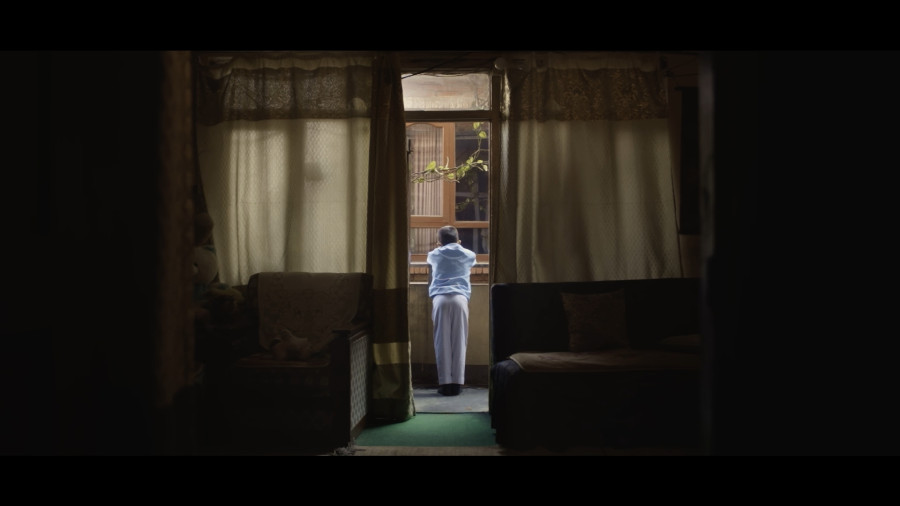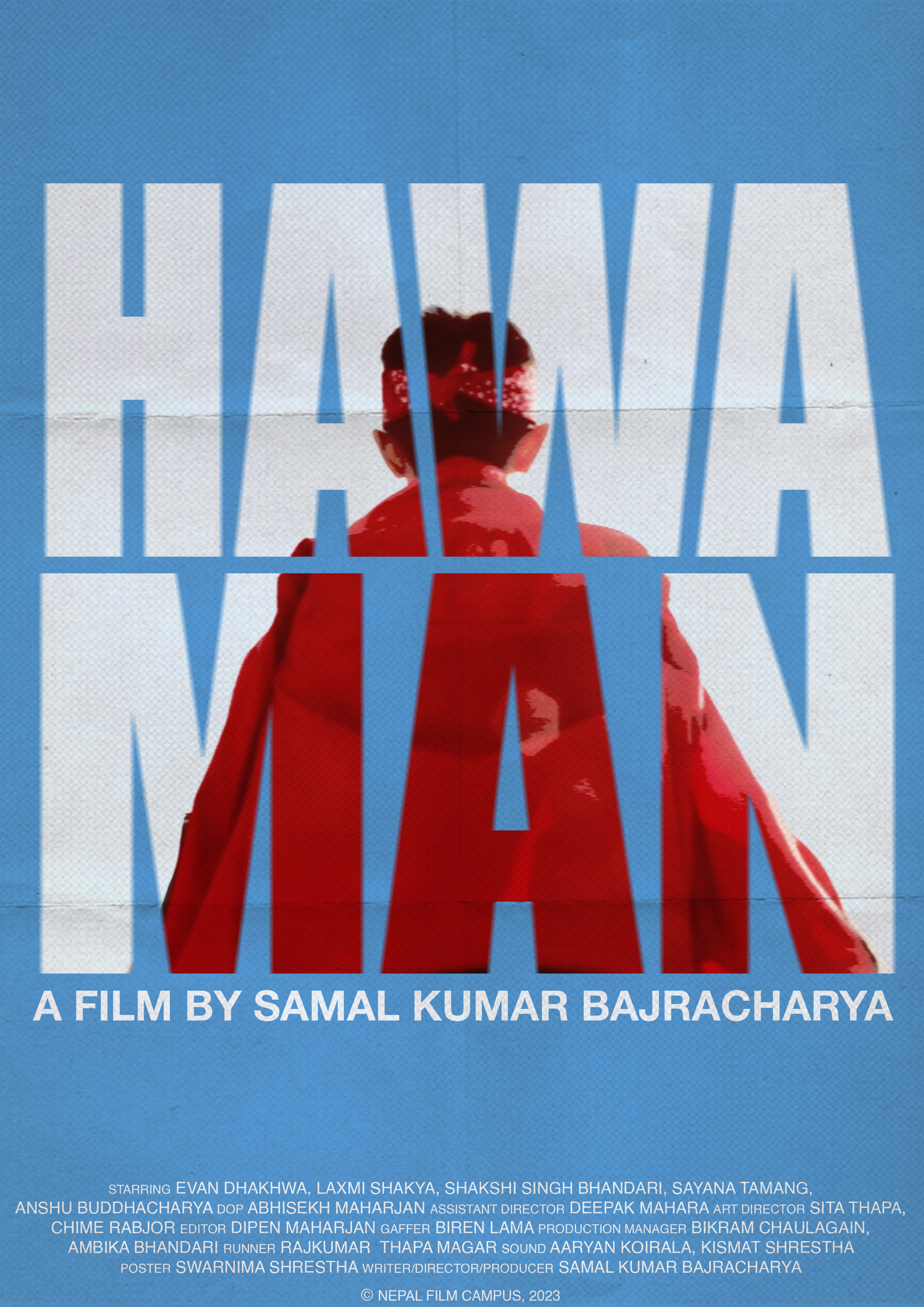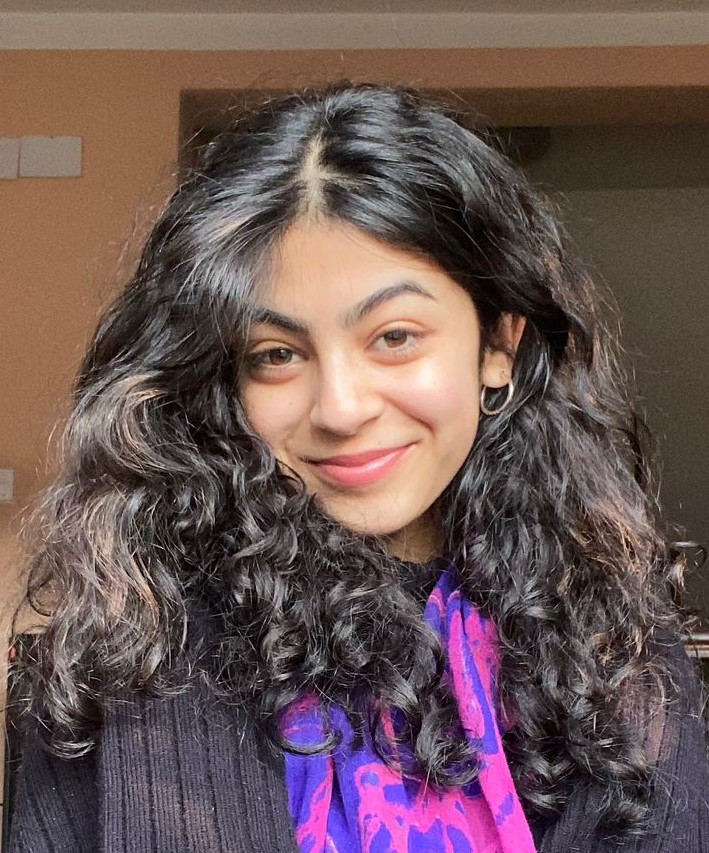Movies
A could-be Superman
Samal Kumar Bajracharya’s ‘Hawaman’, which was recently screened at KIMFF, captures the essence of a child’s everyday life.
Risheka Joshi
It’s rare to find a film that captures the essence of a child's everyday life so effectively that it resonates deeply with the audience, making them feel as if they are watching their own story. However, a short movie, ‘Hawaman’, made by Samal Kumar Bajracharya as a school project, took over the screen of the 21st Kathmandu International Mountain Film Festival (KIMFF) to do just that.
Director Bajracharya addresses a subtle topic without delving into complex issues. He depicts an innocent boy facing significant turmoil as he seeks ways to fly like his hero, Superman.
The film explores the innocent desire of a child to be heroic, a longing that often fades as we grow older. This desire takes Yug—portrayed by Evan Dhakwa—to the extreme. Yug, an eight-year-old boy growing up in a bustling urban home where his parents have limited time for their children, is often labelled as “mischievous”. His love for watching cartoons and “trying to take flight” conflicts with the time he is expected to study by his mother, played by Sakshi Singh Bhandari. The boy is mainly seen spending his days with Ajji—Yug’s grandmother, embodied by Laxmi Shakya—who is blamed for Yug’s misbehaviour.
The film’s cinematography allows the audience to understand Yug's emotions at the moment. In one scene, where he leaves his Superman toy on the study table and tries to jump off his bed, the toy in the foreground is in focus, while Yug, attempting to fly again in the background, is blurred.
This scene might help the viewer to depict Yug’s outright desire to be as majestic as the cartoon. The settings involving his mother are shot in a way that portrays Yug’s feeling of distance and anxiousness around her. The camera shots zoom in only on the mother’s lips or eyes, symbolising the boy’s avoidance and need to escape from the constant heart-wrenching comparison with his little sister.
Nevertheless, the camerawork in the scenes involving Ajji portrays a sense of comfort. Yug runs to his grandmother whenever he misses his flight and bumps his head. When tending to his wounds, Ajji’s scoldings are gentle, and the audience gets to see her dedication to treating Yug. The boy, too, seems playful around her, as if her warmth gleams and calms his anxiousness.
Could this be a critique of city life, where parents, both mother and father, are deeply engaged in their professional pursuits and leave their children's responsibility to the grandparents?
During the 11-minute runtime of the movie, Yug makes countless attempts to accomplish his desire to fly. He steals Ajji’s red shawl, skips school, and DIYs the Superman-like cape from it. Despite many scoldings and moments of shaming, his perseverance in achieving his goal highlights the complexity of a child's psychology.
Children are often labelled as spoiled or mischievous when they don't conform to their parent's expectations. However, the better qualities of almost every other child are often ignored, just as Yug's dedication was overlooked by his mother. This raises the question of whether a child's behaviour is innate or if their good qualities are moulded into something disfigured by the way they are treated during childhood. This transformation turns Yug into Hawaman—a man of the air, or the ridiculed man—instead of resembling his hero.
During the post-screening Q&A session, director and writer Bajracharya mentioned that he sees himself in Yug. However, anyone who watches the film might see a reflection of their own childhood. Taking such a minor issue and creating such a profound mirror out of it is remarkable for a filmmaker who is just starting out in the industry.

Director and Writer: Samal Kumar Bajracharya
Cast: Evan Dhakwa, Sakshi Singh Bhandari, Laxmi Shakya Sayana Tamang
Duration: 11 minutes 13 seconds
Language: Nepal Bhasa and Nepali




 12.32°C Kathmandu
12.32°C Kathmandu











